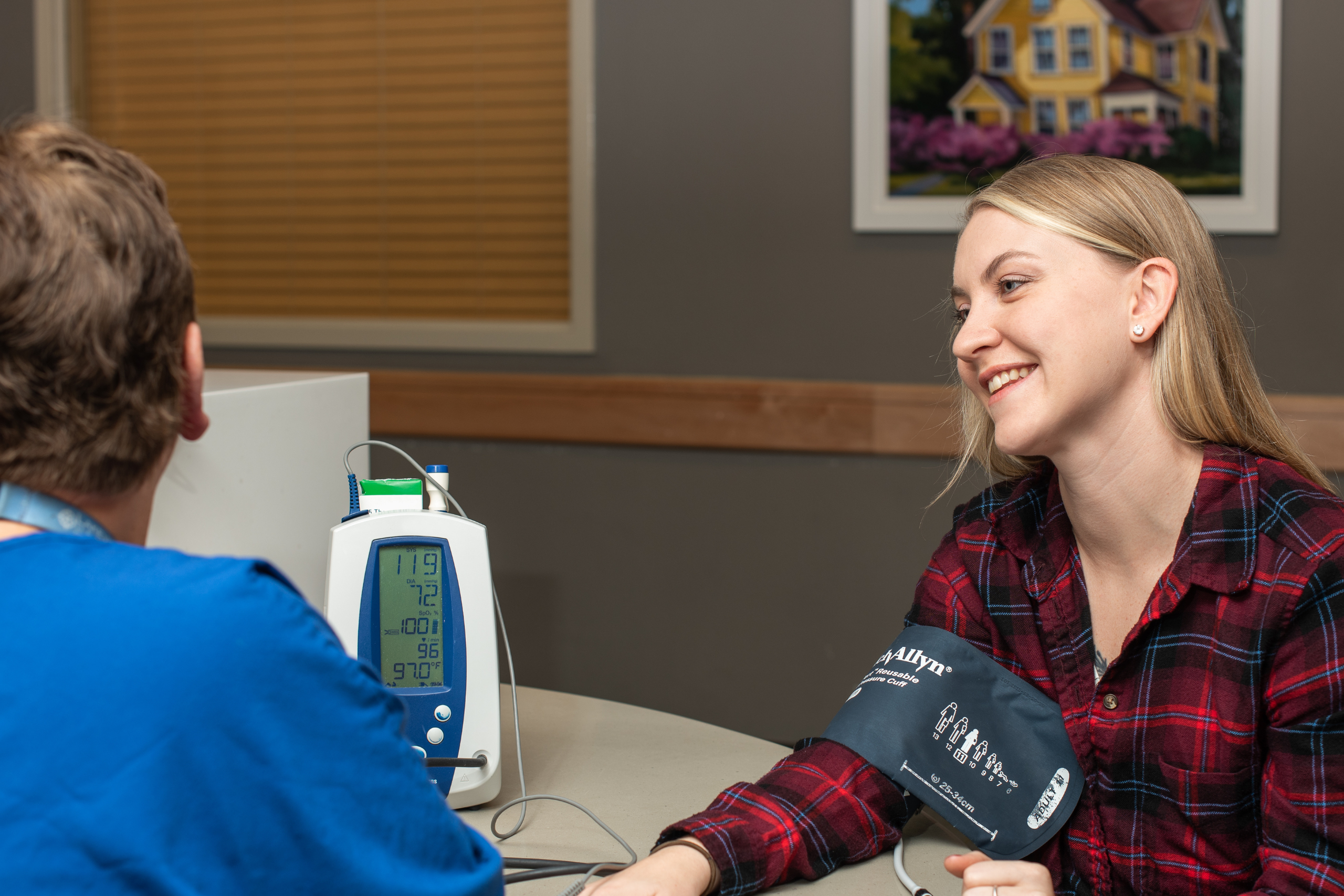People diagnosed with an eating disorder have an increased risk of experiencing other mental or physical health disorders. These are often referred to as “co-occurring conditions.” When a person seeks treatment for an eating disorder (ED), any co-occurring illnesses need to be considered and treated alongside the eating disorder, regardless of whether or not these co-occurring illnesses are linked to the eating disorder or exist independently. This can be extremely complex, but is a crucial part of an integrated and holistic treatment plan.
Co-occurring Medical Illnesses and Physical Symptoms
Eating disorders can be devastating for the body, with imbalances in nutrition and electrolytes being some of the most life-threatening repercussions. People with anorexia nervosa (AN) have a mortality rate that is 5 times higher than people who don’t have an eating disorder. Those with bulimia nervosa (BN) run a risk of premature death that is 50% higher than the average person. While these are not the only medical complications of eating disorders, these statistics emphasize the severity of an eating disorder diagnosis and the urgency of seeking treatment.
Cause and effect are not always clear with co-occurring illnesses and sometimes both illnesses might be linked to other risk factors entirely. This makes treatment especially complex and research into these relationships crucial to help us enhance treatment efficacy. The following list gives examples of medical illnesses that are commonly found to co-occur with eating disorders, but it is important to remember that each person has their own experience and should discuss their symptoms with their medical care providers to get the most comprehensive care.
Common medical illnesses or physical symptoms that co-occur with eating disorders:
- Gastrointestinal problems
- Headaches
- Menstrual disruptions
- Polycystic ovarian syndrome (PCOS)
- Osteopenia and osteoporosis
- Hair, skin and nail problems
- Type I and II diabetes
- Hypotension
- Joint pain
- Muscle weakness
Mental Health Disorders that Co-occur with Eating Disorders
Between 55-97% of those with an ED will meet the diagnostic criteria for another mental health disorder. The most common psychiatric disorders that co-occur with EDs include mood disorders, anxiety disorders, substance abuse disorders, post-traumatic stress disorder (PTSD), obsessive-compulsive disorder (OCD), some personality disorders, and self-harm. Researchers think that the high risk of co-occurring mental illness might be due to shared risk factors for the co-occurring disorders (such as trauma, emotional health, genetic predisposition, etc.).
There may also be a link to personal traits and temperament. Some researchers have noted that those with bulimia and binge eating disorder tended to have greater co-occurrence with substance abuse disorder, self-harm and addiction, perhaps linked to impulsivity, novelty-seeking and emotional dysregulation within these individuals. This contrasted with the higher rates of anxiety disorders (related to compulsivity, control, social avoidance and risk aversion) in those with anorexia in this particular study.
It is important to remember the risks that come with co-occurring mental disorders. Of women with an eating disorder diagnosis, 36.8% engage in regular self-harm. Death by suicide is 31 times higher in those with anorexia and 7.5 times higher in those with bulimia than in the general population. Through trying to understand aspects of co-occurring mental illnesses, such as the order of onset, shared risk factors and unique interactions between certain disorders, the hope is to increase treatment efficacy and promote recovery for those diagnosed with co-occurring disorders.
Below are some of the mental health disorders that most commonly co-occur with eating disorders:
Anxiety
Anxiety disorders are a group of disorders that have the common symptom of pervasive and excessive fear in a non-threatening situation. This group includes phobias, social anxiety disorder, generalized anxiety disorder (GAD) and panic disorder. The National Comorbidity Survey Replication (NCS-R) found that, in the US, 47.9% of those with anorexia nervosa (AN), 80.6% of people with bulimia nervosa (BN) and 65.1% of those people with binge-eating disorder (BED) also have an anxiety disorder. Anxiety disorders can be present in 56% of people with an ED.
Mood disorders
Mood disorders have the common symptom of mood/emotional disruptions that can lead to extreme highs (mania) or lows (depression). Mood disorders can be broadly categorized into bipolar disorders and depressive disorders. There seems to be a widespread co-occurrence of mood disorders across all eating disorders, with one study finding that 94% of people admitted for an ED had a co-occurring mood disorder (most often major depression). Within the US, the NCS-R reports that 42.1% of those with AN, 70.7% of people with BN and 46.4% of those people with BED have been diagnosed with some mood disorder. Considering the elevated rates of suicide in those with an ED such as anorexia or bulimia, the treatment of co-occurring mood disorders simultaneously with eating disorders is crucial.
Substance Use Disorders
Substance use disorders are characterized by the repeated misuse of substances (such as alcohol) that has resulted in physical and psychological dependence. Often, substances are used to cope with overwhelming symptoms, sometimes caused by co-occurring mental illnesses. The NCS-R reports that, within the US, between 23% -36% of people diagnosed with anorexia, bulimia or binge-eating disorder also have a substance use disorder. The misuse of alcohol and other substances seems to vary across eating disorders. Substances such as caffeine, tobacco, diet pills and laxatives are commonly misused by individuals with symptoms of eating disorders.
PTSD
Experiencing a traumatic event (such as an assault, accident, military combat or a natural disaster) can have long-lasting effects. Short-term effects of life-threatening events are normal, but persistent symptoms may result in a post-traumatic stress disorder (PTSD) diagnosis. It has been reported that 23.1% of AN and 25.5% of BN participants with and ED also had a current diagnosis of PTSD. Cumulative traumatic experiences resulted in more severe symptoms. This emphasizes the need for trauma-informed care in the treatment of eating disorders. This study also highlights the need to treat co-occurring disorders simultaneously, as the disorders can interact and can exacerbate the symptoms of both.
Finding Treatment for Eating Disorders and Co-occurring Mental Illnesses
Treatment for co-occurring illnesses requires an experienced team of medical professionals who view recovery from a holistic perspective, such as our team at Koru Spring. There are many challenges to treating eating disorders and co-occurring mental illnesses, but treatment is available. Seeking urgent treatment for eating disorders is important for successful recovery, so if you or a loved one is experiencing an eating disorder, please contact the Koru Spring admissions team today.




